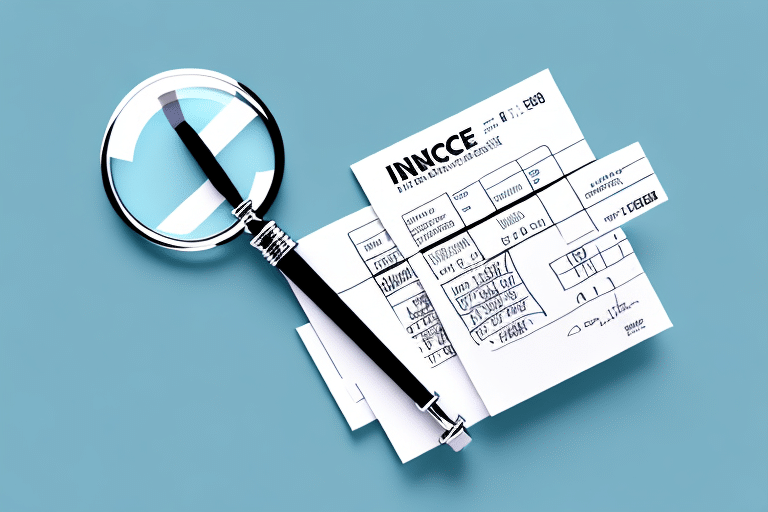Importance of Conducting a Freight Invoice Audit
As a business owner, optimizing profits and minimizing costs are constant priorities. Conducting a freight invoice audit is a strategic approach to achieving these goals. Regular audits help identify discrepancies and errors in your freight invoices, preventing overpayments to carriers. According to a U.S. Department of Transportation report, businesses can save up to 5-10% on freight costs through diligent auditing practices.
Beyond cost savings, freight invoice audits provide insights into your shipping processes. By analyzing invoiced data, you can determine which carriers and routes are most cost-effective, allowing for informed decision-making that enhances operational efficiency and customer satisfaction. Additionally, maintaining compliance with industry regulations through regular audits helps avoid legal complications related to incorrect billing or payments.
Key Components of a Freight Invoice
Understanding the detailed elements of a freight invoice is crucial for accurate auditing. A typical freight invoice includes:
- Shipment Details: Origin and destination points, shipment date, and type of goods transported.
- Carrier Information: Name of the carrier, mode of transportation, and contact details.
- Cost Breakdown: Charges based on weight, volume, distance, and any additional services rendered.
- Payment Terms: Due dates, discount terms for early payments, and penalties for late payments.
Additional details such as special handling instructions and accessorial fees may also appear on the invoice. Thoroughly reviewing each component helps in identifying any inconsistencies or unauthorized charges.
Common Issues and Solutions in Freight Invoices
Freight invoice audits often reveal several recurring issues that can inflate shipping costs:
- Incorrect Measurements: Errors in reported weight or volume can lead to overcharging. Accurate measurement practices are essential.
- Billing Code Errors: Misapplied codes for services can result in incorrect pricing. Regularly updating and verifying billing codes helps mitigate this issue.
- Unauthorized Charges: Accessorial fees like liftgate or inside delivery that weren't agreed upon can sneak into invoices. Clear contract terms and vigilant invoice reviews prevent unauthorized charges.
Addressing these issues involves collaborating with your carriers to rectify errors, negotiate refunds or credits, and implement stricter internal controls to prevent future discrepancies.
Selecting the Right Audit Firm
Choosing an experienced and reputable audit firm is pivotal for effective freight invoice audits. Consider the following when selecting a firm:
- Industry Expertise: Firms with a deep understanding of the logistics and freight industry are better equipped to identify nuanced discrepancies.
- Comprehensive Services: Look for firms offering both pre-payment and post-payment audits to cover all aspects of invoicing.
- Technology Utilization: Firms using advanced tools like automated invoice processing and data analytics can provide more accurate and efficient audits.
- Customer Service: Responsive and communicative firms ensure a smooth audit process and effective resolution of issues.
Aligning the audit firm's services with your business needs and budget ensures a valuable partnership that enhances your financial management.
Preparing and Conducting the Audit
Preparation Steps
Effective audit preparation involves gathering and organizing all relevant shipment documents, including bills of lading, invoices, and shipping manifests. Ensuring these documents are easily accessible facilitates a smoother audit process.
During the Audit
During the audit, the auditing firm examines your invoices and supporting documentation to identify errors, discrepancies, and compliance issues. The auditors will also review carrier contracts and rate agreements to ensure that billing aligns with agreed terms.
Upon completion, you will receive a detailed report highlighting findings and recommendations for improvement. This report serves as a roadmap for enhancing your shipping processes and financial practices.
Tools and Technologies for Freight Invoice Auditing
Advancements in technology have significantly streamlined the freight invoice auditing process. Key tools and technologies include:
- Automated Invoice Processing: Software solutions that automatically extract and analyze invoice data reduce manual errors and save time.
- Data Analytics: Advanced analytics tools help in identifying patterns, trends, and anomalies in freight costs, enabling more informed decision-making.
- Cloud-Based Platforms: These platforms facilitate real-time collaboration and data sharing between auditors and your internal team.
Implementing these technologies enhances the accuracy and efficiency of audits, leading to more reliable financial outcomes.
Case Studies and Benefits
Numerous companies have successfully improved their financial standing through freight invoice audits. For instance:
- Company A: Identified billing errors that led to savings of over $1 million in a single year by correcting overcharges and negotiating better rates.
- Company B: Enhanced shipping efficiency by optimizing carrier selection based on audit findings, resulting in a 15% reduction in shipping costs.
These case studies demonstrate the tangible benefits of freight invoice auditing, including significant cost savings, improved operational efficiency, and enhanced financial accuracy.
Conclusion
Freight invoice audits are a powerful tool for businesses aiming to optimize shipping costs and enhance financial management. By understanding the components of freight invoices, selecting a competent audit firm, and leveraging advanced auditing technologies, businesses can identify and rectify billing discrepancies effectively. The resulting cost savings and process improvements not only bolster the bottom line but also contribute to more efficient and compliant shipping operations. Regularly conducting freight invoice audits ensures that your business remains competitive and financially robust in an ever-evolving logistics landscape.








